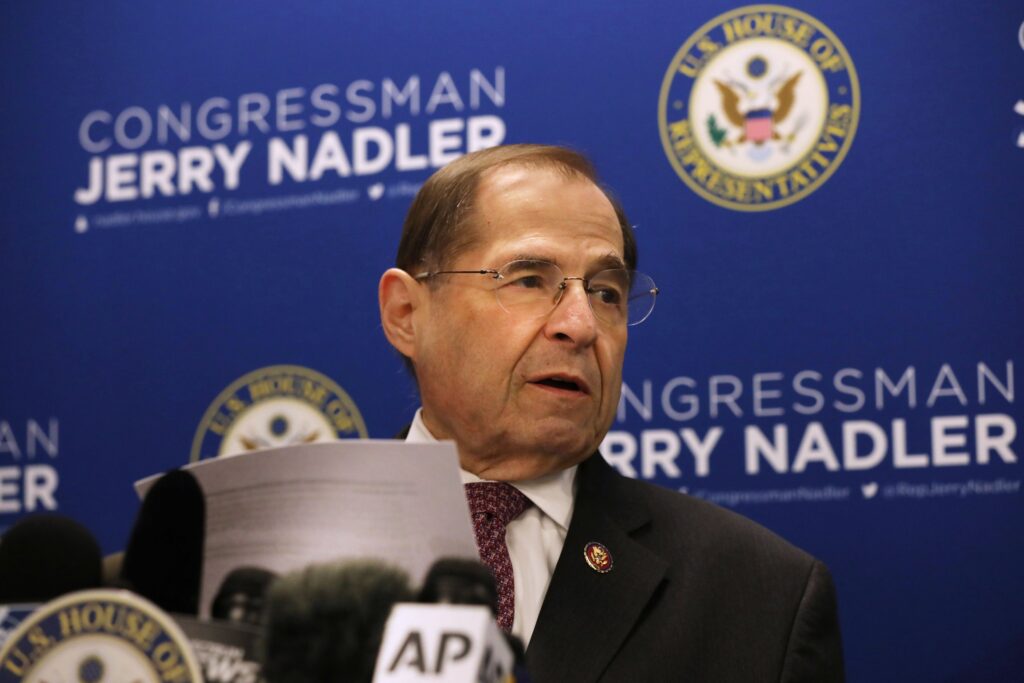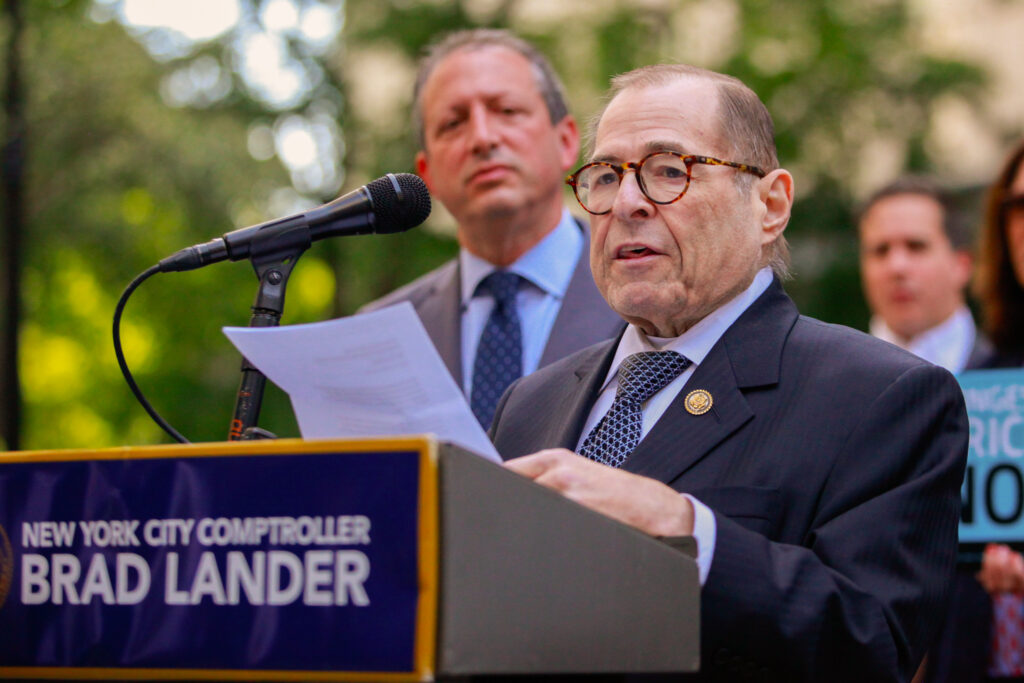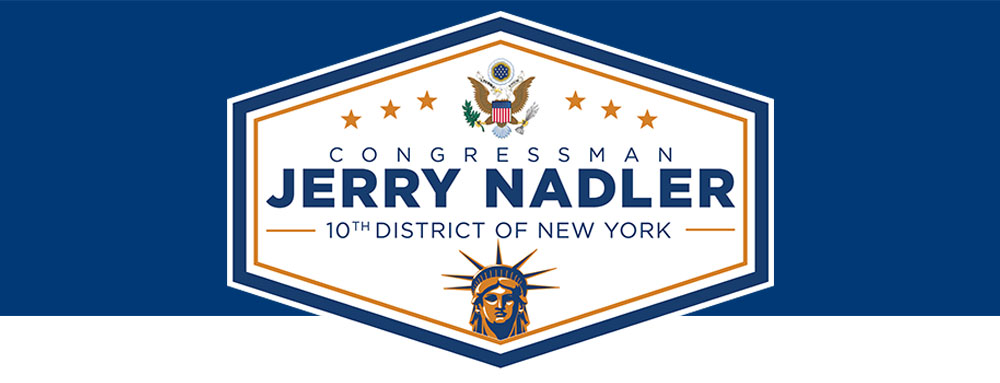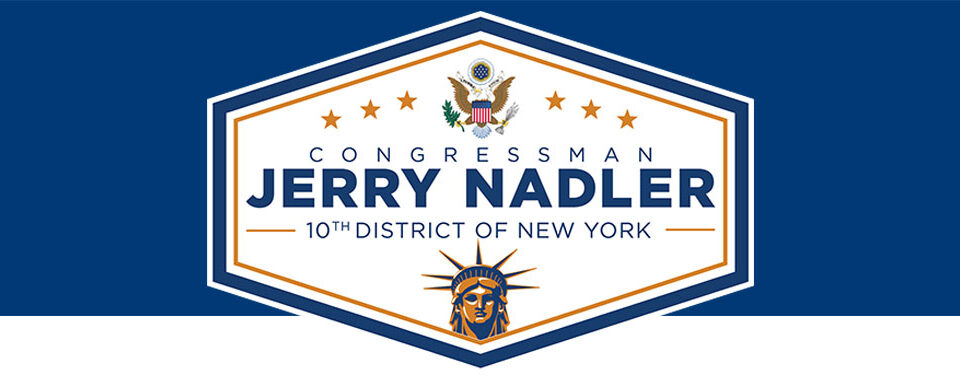Jerry Nadler, a stalwart of the Democratic Party, has been a fixture in the U.S. House of Representatives for over three decades, representing districts in New York City since 1992. Born on June 13, 1947, in Brooklyn,Exploring Jerry Nadler grew up in a Jewish family and pursued a path that blended legal expertise with progressive activism. His career in Congress has been marked by a commitment to civil rights, judicial oversight, and infrastructure development, often positioning him at the center of national debates. As the dean of New York’s congressional delegation, Nadler has navigated redistricting, primary challenges, and high-stakes political battles, all while advocating for policies that align with liberal values.
On September 1, 2025,Jerry Nadler announced he would not seek re-election in 2026, citing the need for a “new generation” to represent his Manhattan-based district. This decision comes after a long tenure where he helped pass landmark legislation like the Affordable Care Act and the Bipartisan Infrastructure Act. Reflecting on his service, Nadler expressed pride in his votes that advanced healthcare access, infrastructure improvements, and social justice initiatives. His retirement marks the end of an era for progressive politics in the House, where he has been a vocal champion for issues ranging from LGBTQ+ rights to cannabis reform.
Nadler’s impact extends beyond individual bills; he has shaped the Democratic agenda through leadership roles, particularly as Chair of the House Judiciary Committee from 2019 to 2023. In this capacity, he oversaw critical oversight functions and played a pivotal role in two impeachments of former President Donald Trump. As we explore his legislative legacy, it’s clear th] Exploring Jerry Nadler’s work has influenced everything from civil liberties to urban development in one of America’s most dynamic cities. For more on influential Democratic leaders, check out our article on Democratic Party Trailblazers.

Early Life and Path to Congress Jerry Nadler
Jerrold Lewis Nadler was raised in Brooklyn, attending Crown Heights Yeshiva and later Stuyvesant High School, graduating in 1965. He earned a Bachelor of Arts from Columbia University in 1969 and a Juris Doctor from Fordham University School of Law in 1978. Before entering national politics, Nadler built a foundation in state-level governance, serving as a legislative assistant and clerk while honing his skills in public policy.
His political journey began in earnest with his election to the New York State Assembly in 1976, where he represented Manhattan’s West Side from 1977 to 1992. During this time,Exploring Jerry Nadler chaired the Assembly Subcommittee on Mass Transit and Rail Freight, focusing on transportation issues that would later define parts of his congressional career. He was affiliated with the Democratic Socialist Organizing Committee, a precursor to the Democratic Socialists of America, reflecting his progressive leanings early on.
Nadler made unsuccessful bids for Manhattan Borough President in 1985 and New York City Comptroller in 1989, but these experiences sharpened his campaign acumen. His entry into Congress came in 1992 following the death of incumbent Representative Ted Weiss. Nadler won a special election for the remainder of Weiss’s term in New York’s 17th district and simultaneously secured a full term in the renumbered 8th district. Over the years, redistricting shifted his representation to the 10th district in 2013 and the 12th in 2023, encompassing areas like Manhattan’s Upper West Side, Chelsea, and parts of Brooklyn.
Throughout his elections,Exploring Jerry Nadler has faced primary challenges, notably in 2020 from Lindsey Boylan and in 2022 from Carolyn Maloney after redistricting pitted the two incumbents against each other. He emerged victorious with 56% of the vote in 2022, demonstrating his enduring appeal in a Democratic stronghold. For insights into congressional redistricting battles, visit our piece on U.S. House Redistricting Wars.
Committee Leadership and Oversight Role
Nadler’s influence in the House is deeply tied to his committee assignments. A long-time member of the Transportation and Infrastructure Committee, he has advocated for investments in public transit, rail systems, and urban development—issues rooted in his state assembly days. His efforts have secured funding for projects like the Second Avenue Subway extension and improvements to New York’s aging infrastructure.
However, it is his tenure on the House Judiciary Committee that has cemented his legacy. Serving as Ranking Member from 2017 to 2019 and again from 2023 to 2025, and as Chair from 2019 to 2023, Nadler oversaw some of the most consequential hearings in recent history. The committee under his leadership earned high marks for oversight, with an “A” grade from the Lugar Center for the 116th Congress. This role allowed him to shape debates on immigration, antitrust, and constitutional matters.
As Chair, Nadler led the committee through turbulent times, including advancing legislation on voting rights, criminal justice reform, and tech regulation. He was instrumental in pushing forward bills addressing Big Tech monopolies and consumer protections. Externally, link to his official biography on Congress.gov for a full list of his sponsored bills.
Key Legislative Achievements
Nadler’s legislative portfolio is expansive, reflecting his progressive priorities. In civil rights, he has been a leading voice for LGBTQ+ equality. He sponsored the Respect for Marriage Act in 2009, which sought to repeal the Defense of Marriage Act and federally recognize same-sex marriages—a precursor to the 2022 law that codified these protections. Building on this, Nadler introduced the Equality Act in 2019, expanding the Civil Rights Act of 1964 to prohibit discrimination based on sexual orientation and gender identity. This bill passed the House multiple times but stalled in the Senate, highlighting Nadler’s role in advancing social justice despite partisan gridlock.
On reproductive rights, Nadler authored the Freedom of Choice Act in 2004 and 2007, aiming to codify Roe v. Wade protections federally—a prescient move given later Supreme Court decisions. His commitment to women’s rights extends to co-sponsoring measures enhancing access to healthcare.
In criminal justice and drug policy,Jerry Nadler has championed reform. He led the Marijuana Opportunity Reinvestment and Expungement (MORE) Act, which passed the House Judiciary Committee in 2019 and the full House in 2022. This legislation seeks to decriminalize cannabis federally, expunge records, and reinvest in affected communities. In 2025, he sponsored H.R. 5068 to further decriminalize and deschedule cannabis, underscoring his ongoing push for progressive drug policies.
Nadler’s work on gun control is equally notable. He has authored bills to strengthen the assault weapons ban and prevent gun trafficking, drawing from his long record on reducing violence. He also played a key role in reauthorizing the Violence Against Women Act and supporting measures like the Bipartisan Safer Communities Act.
In infrastructure and economic policy,Exploring Jerry Nadler’s Transportation Committee involvement has yielded tangible results. He helped secure billions for housing programs, including Section 8 vouchers and HOPWA (Housing Opportunities for Persons with AIDS). His advocacy contributed to the passage of the Bipartisan Infrastructure Law in 2021, funding projects critical to New York, such as transit upgrades and resilience against climate change. Nadler has also pushed for expanding the Child Tax Credit to aid working families.
Other achievements include honoring civil rights icons; he co-sponsored a bill to award a Congressional Gold Medal to the Freedom Riders. In environmental policy, Exploring Jerry Nadler supported the Green New Deal in 2023 and advocated for Medicare for All through his Progressive Caucus membership. His 2024 report card shows he cosponsored the 21st most bills among long-serving members, ranking highly on the left politically.
For a deeper dive into civil rights legislation, see our internal guide on Landmark Civil Rights Bills. Externally, exploring Jerry Nadler’s sponsored legislation on his House website.

Notable Events and Controversies
Nadler’s career has not been without controversy. As Judiciary Chair, he led the impeachments of Donald Trump in 2019 and 2021, serving as an impeachment manager in the first trial. During the 2019 proceedings, Republicans accused him of unlawfully initiating impeachment without full House approval, leading to a failed resolution to remove him as chair. His 1998 statements during Bill Clinton’s impeachment, warning against partisan overreach, were contrasted with his stance on Trump, sparking debates on consistency.
In 2021,Exploring Jerry Nadler faced criticism for a misstatement about Kyle Rittenhouse transporting a gun across state lines, rated “False” by PolitiFact. More recently, in May 2025, an incident involving his aide being detained by DHS officers prompted Nadler to call for an investigation, accusing authorities of overreach.
Nadler also diverged from some Democrats on key votes, such as opposing the 2002 Iraq War authorization and supporting the 1994 crime bill. These moments highlight his principled, if sometimes contentious, approach.
Legacy and Future Impact Jerry Nadler
Nadler’s legacy is one of steadfast progressivism in a polarized Congress. With over 540 sponsored bills and thousands cosponsored, he has left an indelible mark on policy areas like equality, justice, and infrastructure. His oversight work ensured accountability during pivotal moments, and his advocacy for marginalized communities has inspired a new wave of legislators.
As he steps down, Nadler’s district may see fresh faces, but his contributions will endure. For more on retiring congressional figures, read our article on Congressional Retirements in 2026.

Conclusion
Jerry Nadler’s 33 years in the House represent a commitment to progressive ideals and effective governance. From championing civil rights to leading impeachments, his impact resonates in laws that protect freedoms and build infrastructure. As he retires in 2026, Nadler’s career serves as a blueprint for principled representation. For the latest on U.S. politics, visit Politico or explore his full record on Wikipedia.
